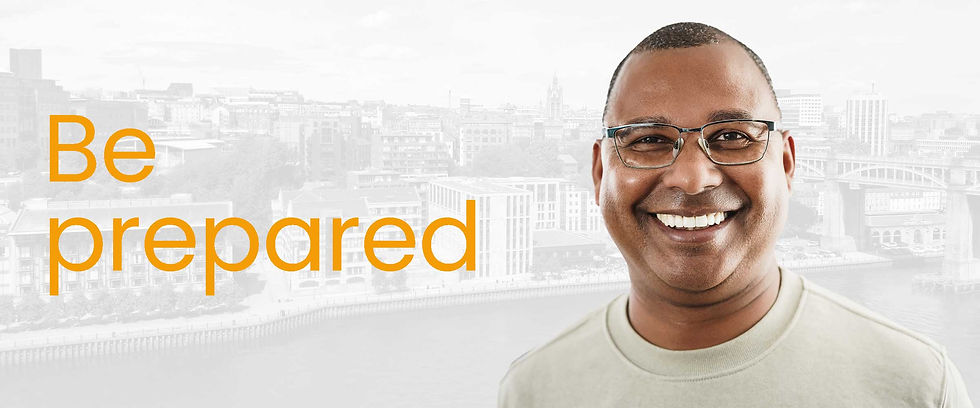7 Habits of Creative Conversation
- Feb 27, 2024
- 3 min read
Updated: Jan 27, 2025
The 7 Habits of Creative Conversation are rooted in the detailed nitty-gritty of how we human beings connect with each other when we're at our best.
To some they may seem a bit basic, but that’s actually their strength.
Getting those basics right in everyday conversations can make a huge difference to relationships at home, at work, everywhere – especially when you disagree.
So what exactly are the 7 Habits?

If there's one habit above all others that helps build stronger connections, it's seeking to understand the other person before expecting them to understand you. It helps because it meets a fundamental human need to be heard and understood.
But genuine understanding is often in short supply, and the person who provides it makes a valuable contribution to any conversation – regardless of whether or not you agree. That's why Understand First is first on our list of habits to develop.

You might feel clear about what you're saying but it's what the other person understands that really counts – and those two things might not match.
So how can you express yourself in a way that maximises the chances of being understood – clearly and fully – by whoever you're talking to?
The key is empathy – and using it when you're sharing or explaining something is as important as when you're trying to understand somebody else.

Taking ownership means putting yourself in the driving seat – taking seriously your role as the active agent at the centre of our own, unique human network.
It’s about understanding that you have the power to change things for the better, even if just a bit. And that when you change your approach to conversations, your relationships will reflect that change.
Whenever you decide to understand first or to be understood more clearly, you're taking responsibility for that conversation – ‘owning’ it.

Why are we more open to certain people and ideas than others? And how can you stay open when confronted by people and ideas that usually push your buttons?
Habit 4 is all about understanding the dynamics of basic human needs and how to develop the habit of responding rather than reacting to 'negative' triggers.

The most effective way to create value in any kind of relationship is to meet needs – yours and others. This is the principle at the heart of creative conversation.
Habit 5 looks at how you can quickly get to the heart of things by uncovering the basic human needs that are driving it – to the benefit of all concerned.

Healthy relationships rely on healthy challenging. But what is that exactly?
How can you challenge something you disagree with – maybe even deeply – in a way that moves things forward and doesn't, however inadvertently, make things worse? And how can you get better at being challenged – especially when it feels unfair or like a personal attack?
As Habit 6 explains, the secret lies in applying some key TIPS…

'Difficult' conversations. Unexpected opportunities. Unwelcome ambushes. Life is full of surprises, pleasant or otherwise, and situations we'd rather avoid. And in dealing with them we often fail , fall short, do and say things we later regret. We're human!
Habit 7's about using creative conversation to prepare for the inevitable bumps in the road of daily life – whether or not we can see them coming.
That's the 7 habits in a nutshell. They all contain a range of skills and insights that are active beneath the surface when people speak and listen (or fail to speak and listen) to each other.
Developing any one of the 7 habits will have a significant, positive effect on your relationships. Developing all of them will be transformative – we promise!
To do that you'll need to practise some skills.
We have courses and resources to support you with that. To learn more, just sign up – it's free!




Comments